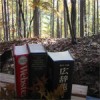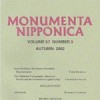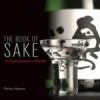Articles
September 4, 2022
Editing in Japan: Three Perspectives
by Damon Shulenberger
The June 25, 2005 SWET on Saturdays featured three veteran editors of English in Japan presenting the perspectives of freelance editing, editing of translations, and book editing to 23 working and aspiring editors. The presentations by Phil Ouellet, Lynne E. Riggs, and Ginny Tapley included stories from their experiences, general advice about editing in Japan, and specific pointers... more
December 2, 2009
SWET Open Forum 2009: Wordsmithing in Japan
by Katherine Heins
Where to go for translators’ resources, how to control your computer’s Japanese inputting settings, what an editor needs to know about word processing and other software, how to market your professional skills and carve your niche, how to get your work published, what to tell a Japanese author who wants his/her work published—these were some of the questions... more
July 15, 2009
Academic Editing in the Humanities
by Kate Wildman Nakai
In the fields of history, thought, art history, religion, and literature, which are the main subjects of articles published in Monumenta Nipponica, the rules of academic writing are less formally structured than in the sciences, creating greater freedom but also greater possibility for uncertainty, a lack of clarity, and poor organization. Researchers have traditionally been guided as... more
December 18, 2006
Editorial Insights: The Book of Sake
by Barry Lancet
SWET asked Barry Lancet of Kodansha International, to recall the experience of working with Philip Harper on The Book of Sake, featured in the SWET Newsletter article here. His account offers an insider’s insights on how a book is born and reared and a glimpse of the hard work as well as enjoyment involved.
... moreAugust 11, 2006
Translation and Editing
by Lynne E. Riggs
On average, an editor (if he or she cares at all about the book) must spend two to three times as much time working on a translation than on a book originally written in English; most editors I know have argued, at one time or another, that they—rather than the translator—have translated the book, given how much... more
March 8, 2004
An A-Un Editorial Team
by Pamela J.Noda
Can native speakers and non-native speakers work together as equals? They can on an a-un editorial team. Pamela J. Noda shows us how.
Many of us working in English-language publishing in Japan are in jobs that pair us with editorial assistants whose native language is Japanese. Those of us who are freelance editors interact with the Japanese tantōsha, person... more






